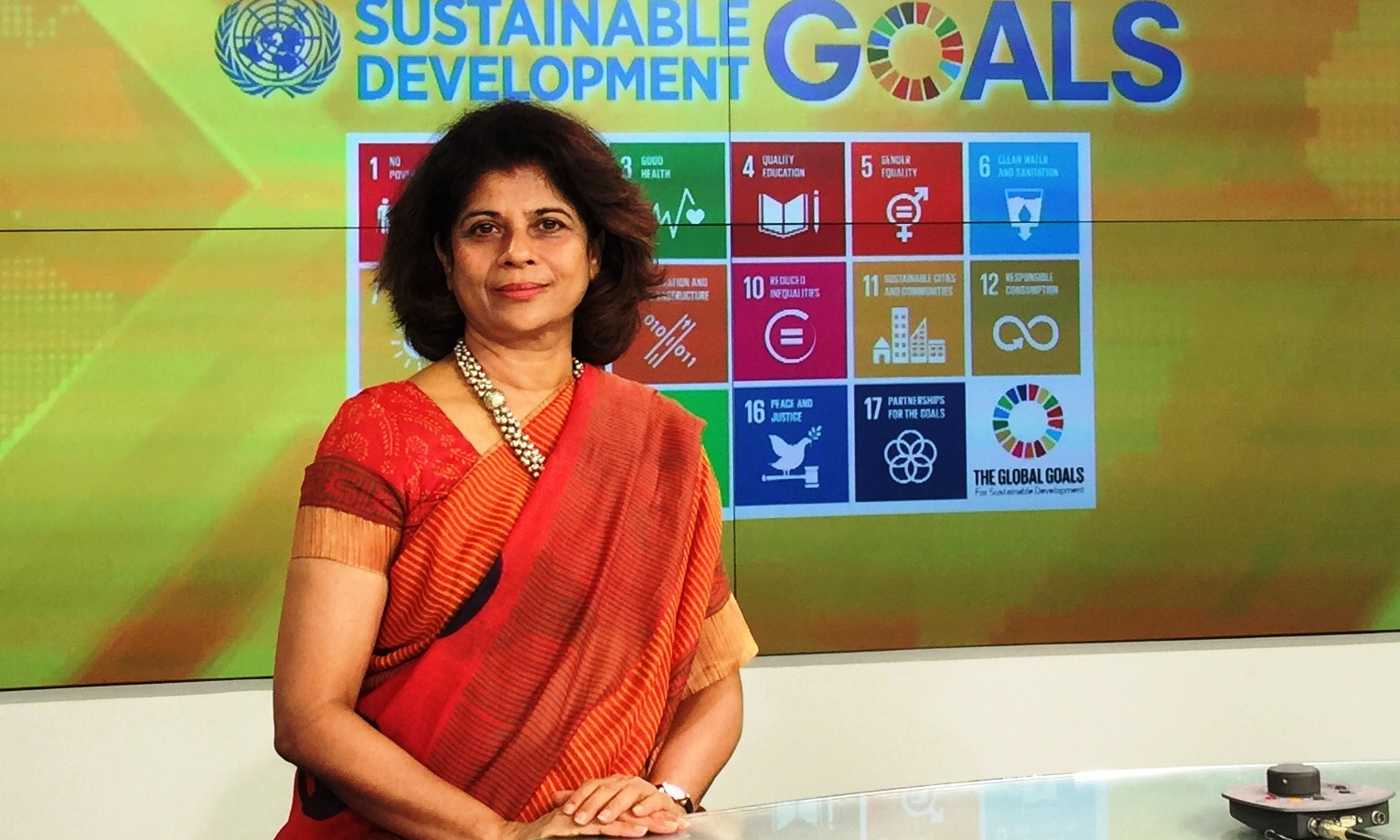Editor’s note: Pratibha Mehta is UN Resident Coordinator and UNDP Resident Representative in Vietnam. She wrote this piece exclusively for Tuoi Tre News.
>> An audio version is available here
History was made last week as State President Truong Tan Sang took his place amongst the world’s leaders for the opening of the United Nations General Assembly in New York.
2015 is a year of special significance. It not only marks the 70th Anniversary of the Independence of Vietnam and the ending of World War II, but also of the founding of the United Nations. It is therefore fitting that this year’s General Assembly opened with what the UN Secretary General Ban Ki-moon described as “a towering achievement”: the adoption of the 2030 Agenda setting out 17 bold and inspiring Sustainable Development Goals (SDGs).
“Our aim is clear. Our mission is possible,” said the UN Secretary General. “And our destination is in our sights: an end to extreme poverty by 2030 and a life of peace and dignity for all.”
This launching of the global goals, which will run between 2015 and 2030, is key for Vietnam. It reaffirms and expands the commitments made in the Millennium Declaration, and replaces the Millennium Development Goals, or MDGs, which expire this year.
The new global goals set out a much more complete and ambitious agenda than the MDGs. Their scope is wider, seeking to address some of today’s most pressing challenges, including climate change, conflicts and migration. They also go further in seeking not only to reduce, but to totally eliminate adversities such as poverty and malnutrition.
Crucially, they are designed for both developed and developing countries, and focus directly on reducing the gaps between and within countries. They commit the world "to leave no one behind," and to build new partnerships not only between countries, but also between key national interests – state, business and civil society.
President Sang was unequivocal in his address at the UN General Assembly last week: “Vietnam wholeheartedly supports the 2030 Agenda and pledges to do our level best to ensure its successful implementation.” Vietnam’s success in striving for the MDGs provides a strong foundation for embracing the new global goals. Indeed, they mark a milestone on Vietnam’s development journey, one where we can catch our breath in celebrating past achievements, but also reflecting on the course that we are setting for our future.
This comes at an opportune time for Vietnam, not only at the beginning of a new Socio-Economic Development Plan cycle, but also at a time of high-level political debates and reflection on the country’s development model. Most recognize the urgent need to address emerging challenges – and to grasp new opportunities – for Vietnam to reach the next level of its development.
In recent years, society has become more complex and diverse, the economy more differentiated, and public expectations of better livelihoods and public services continue to rise. At the same time, Vietnam continues to industrialize, stimulating urbanization and internal migration. This deepens inequalities and risks degrading the environment.
If Vietnam is to build a modern, fair and just society with a robust economy, it must offer opportunities to all its citizens and ensure the rule of law. The State lies at the heart of this challenge, and the SDGs are well suited for this task, offering both measures of outcome success and pointers to the direction of policy reform.
Vietnam must seize this initiative. Three priorities stand out.
Firstly, whilst Vietnam has been one of the global top performers, MDG business is still unfinished. Goals on the environment and HIV/AIDS still need to be achieved, and disparities, particularly between majority and ethnic minority communities still need to be addressed. These priorities are strongly echoed in the SDGs.
Secondly, the highest level of political support must be secured. In New York, State President Sang committed “to mobilize all resources… and place people at the centre of this major endeavour.” This must be reinforced and communicated right down to the local level. Efforts are also needed to mobilize domestic finance by harnessing the private sector to promote sustainable development.
And finally, Vietnam must fully ‘nationalize’ the SDGs and adapt them to its development context. Institutional reforms, policy changes and new monitoring and evaluation mechanisms will all be needed. The National Assembly can play a vital role in overseeing and driving the SDG agenda, as envisaged in the Hanoi Declaration adopted by the 132nd session of the Inter-Parliamentary Union. Action starts now by raising the awareness of policymakers and the public of the bold new agenda and integrating it into plans, policies and programmes at all levels.
Of course, if these ambitious goals are to be achieved, we all have a role to play. SDGs are the result of an unprecedented consultation effort including voices of people all across the world. I was struck by the following words that summarize the collective aspirations of over one million people who took part in these consultation processes:
“This is our declaration of inter-dependence, our commitment to honour the rights of all people everywhere. To protect the planet, our common home. To create shared prosperity, to strengthen universal peace. And to free the world from fear and violence. To work together in partnership so that no one is left behind. We will free the human race from the tyranny of poverty. We will heal and safeguard our planet for all generations and shift our world onto a sustainable path. As we embark on this collective journey, we pledge to include every human. So we gather, we build, we write, we create, we imagine, we collaborate, we dream, we play, we speak, we write, we work, we share, we love.”
The UN System in Vietnam is committed to supporting the country in its post-2015 journey to implement the SDGs towards inclusive, equitable and sustainable development where “no one is left behind.”






















































